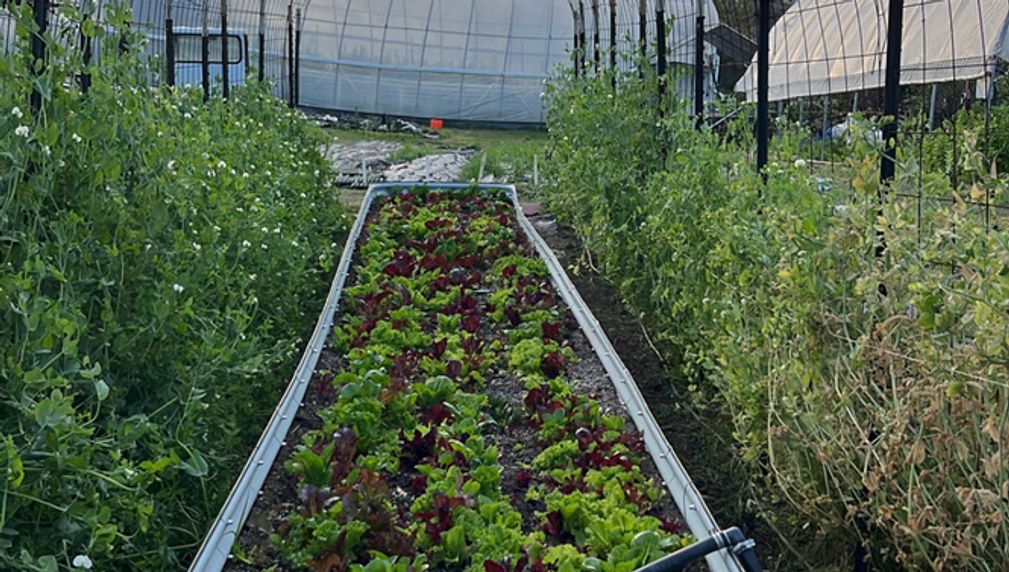Harvesting Hope: A Pathway to Food Justice and Youth Empowerment
Funding of Harvesting Hope will enable us to grow our youth job training and leadership development programs, expand our farm-to-food bank produce distributions, and enhance our capacity to serve as a community hub for education, wellness, and food justice.

What is the primary issue area that your application will impact?
Youth economic advancement
In which areas of Los Angeles will you be directly working?
Long Beach
In what stage of innovation is this project, program, or initiative?
Expand existing project, program, or initiative (expanding and continuing ongoing, successful work)
What is your understanding of the issue that you are seeking to address?
Neighborhoods on the Westside and in North Long Beach face significant challenges, including high levels of income inequality, food insecurity, and homelessness. These systemic issues contribute to barriers that disproportionately affect youth-widening gaps in education and workforce readiness, limiting access to opportunity, and negatively impacting mental and physical well-being. Traditional education systems often fall short in supporting those who struggle in conventional classroom settings. Many young people in these communities lack access to job training, mentorship, and safe, enriching environments. They experience heightened stress, anxiety, and a lack of purpose or belonging-factors that increase their risk of chronic illness. Often, youth are compelled to become wage earners as early as possible to support their families. Meanwhile, local schools remain under-resourced and overcrowded, further compounding these challenges and limiting pathways to a more hopeful future.
Describe the project, program, or initiative this grant will support to address the issue.
Harvesting Hope will engage a total of 60 youth ages 16-24 over the course of 4 sessions. We will provide hands-on training in sustainable agriculture, job readiness, leadership and entrepreneurship. We will hire a dedicated program coordinator and a lead educator to expand and deliver our existing curriculum. Each program session will run for three weeks, six hours per day. To ensure the program is accessible to youth who need to earn income, participants who complete the full session will receive a $500 stipend. Students will learn about basic agriculture business operations, prepare soil, plant, and harvest crops. Two of the three sessions will take place at Farm Lot 59, while one session will be held at an off-site partner location to introduce participants to careers in agriculture, environmental science, and the green economy. Youth will leave the program with job-ready, transferrable skills and a deeper understanding of food systems and sustainability. They will also play a critical role in expanding our Farm-toFood Bank Program by building raised beds, vertical gardens, and installing irrigation systems-efforts that will increase the amount of fresh, organic produce we can provide to those experiencing food insecurity. In addition to work force development, Harvesting Hope emphasizes wellness. Healing workshops, mindfulness practices, and open discussions will illustrate how farms can be spaces not only for growing food-but also for personal growth and healing.
Describe how Los Angeles County will be different if your work is successful.
Education-the heart of everything we do! In the short term, we aim to run four sessions of Harvesting Hope, graduating 60 students. Concurrently, we will grow our Farm-to-Food Bank Program by 50%, providing more fresh, organic produce to food-insecure neighborhoods throughout Long Beach. Looking ahead, we see a county where all youth-including those from historically marginalized communities-have access to solid hands-on job training that prepares them for careers in sustainable agriculture, environmental stewardship, and green innovation. We also see expansion of our operations to increase the volume and variety of nutrient-dense produce available for donation, ensuring more families across LA County have consistent access to fresh, healthy food. Our long-term goal is to scale the Farm Lot 59 model by training community leaders and educators to implement similar programs across the region. Our intended impact is clear: empowered youth, nourished families, and greener neighborhoods.
Approximately how many people will be impacted by this project, program, or initiative?
Direct Impact: 60
Indirect Impact: 500